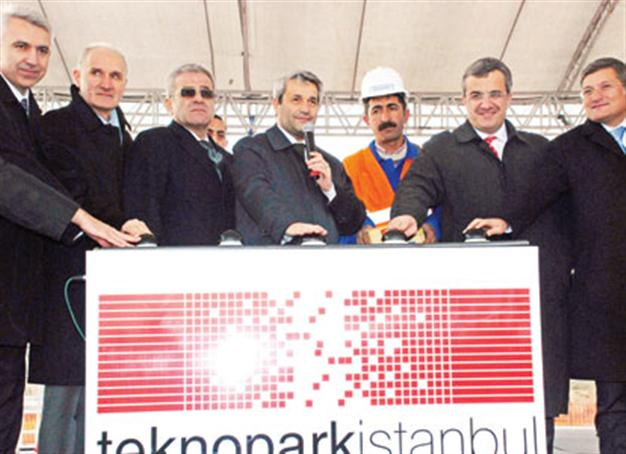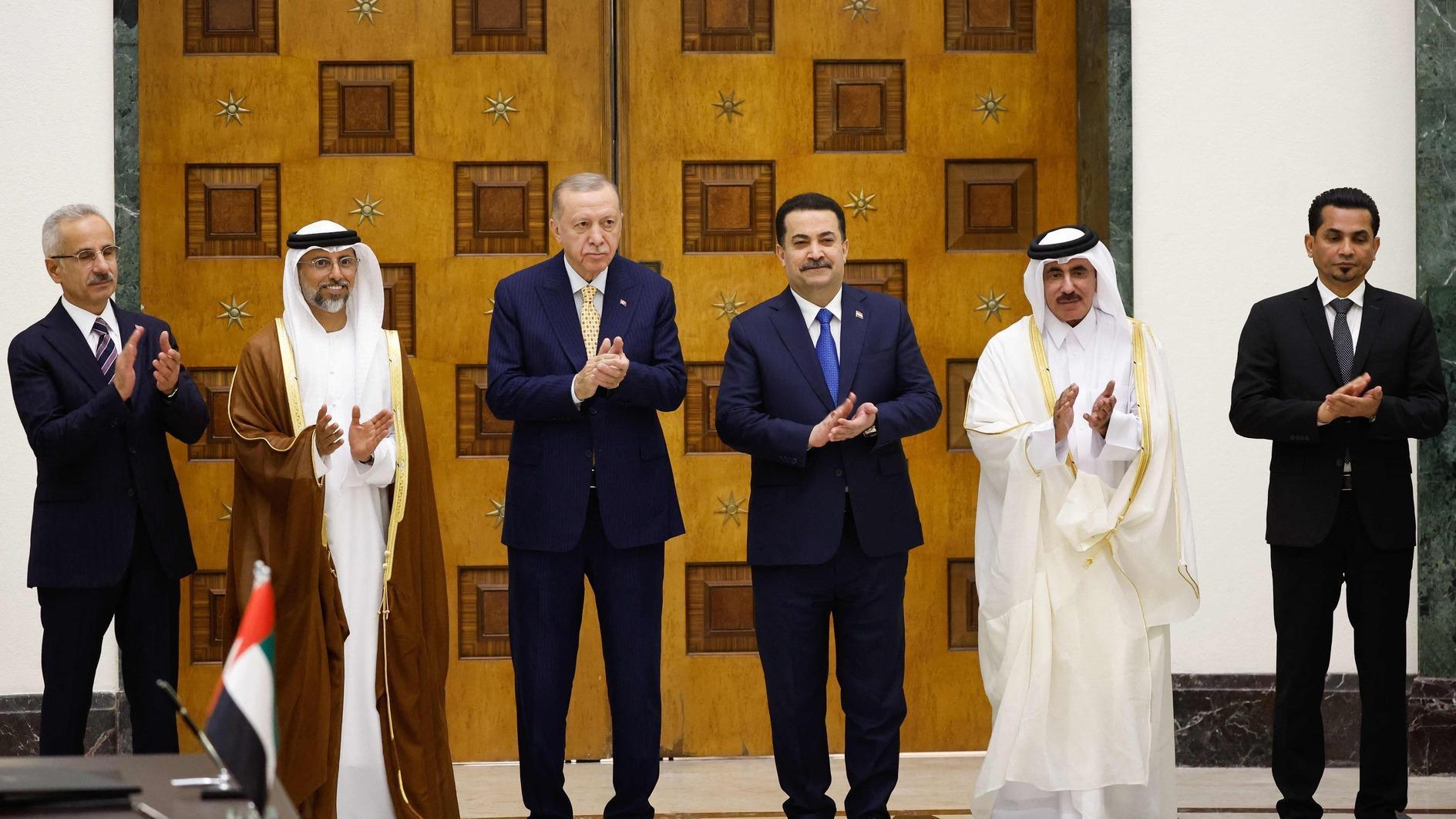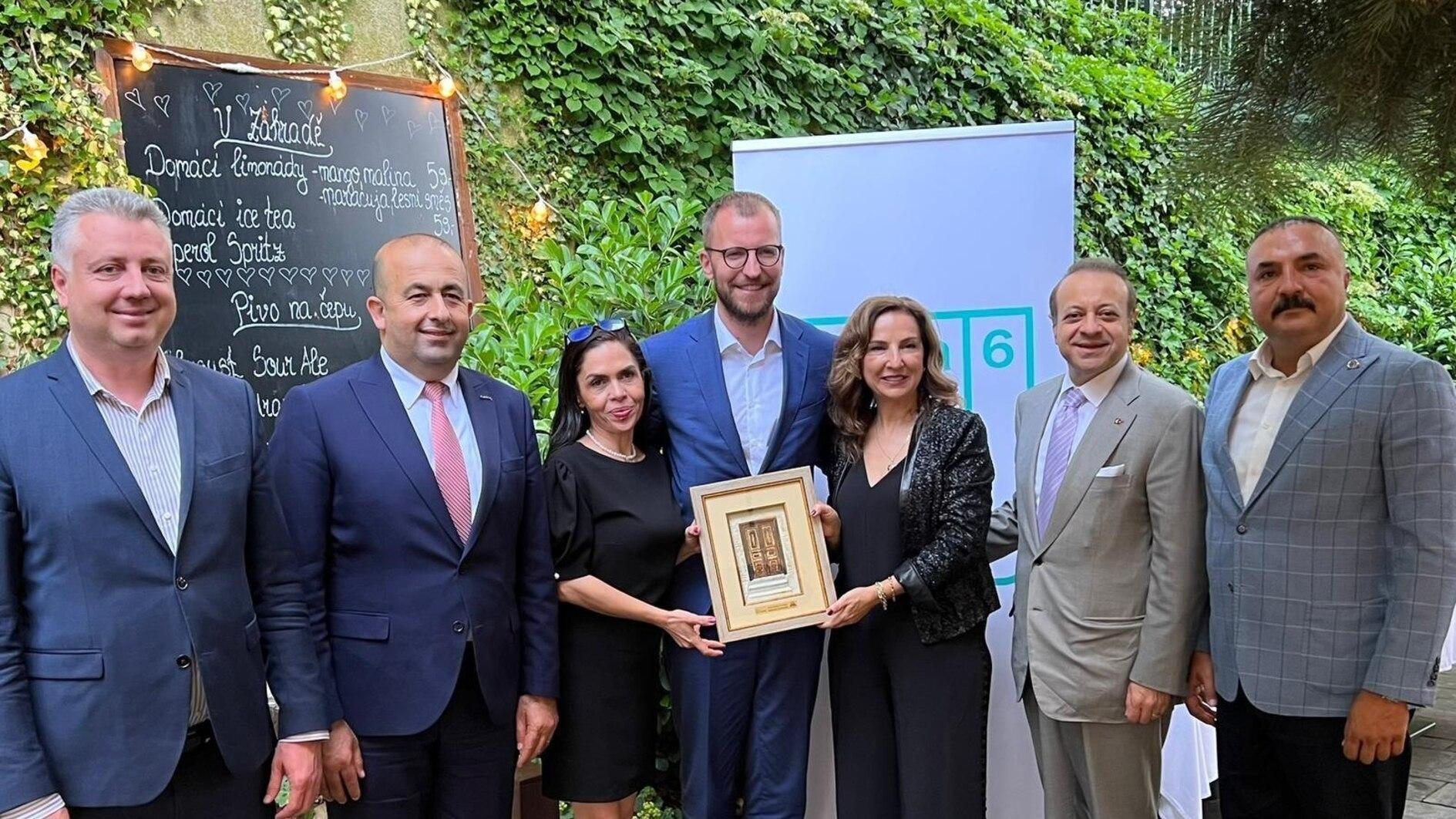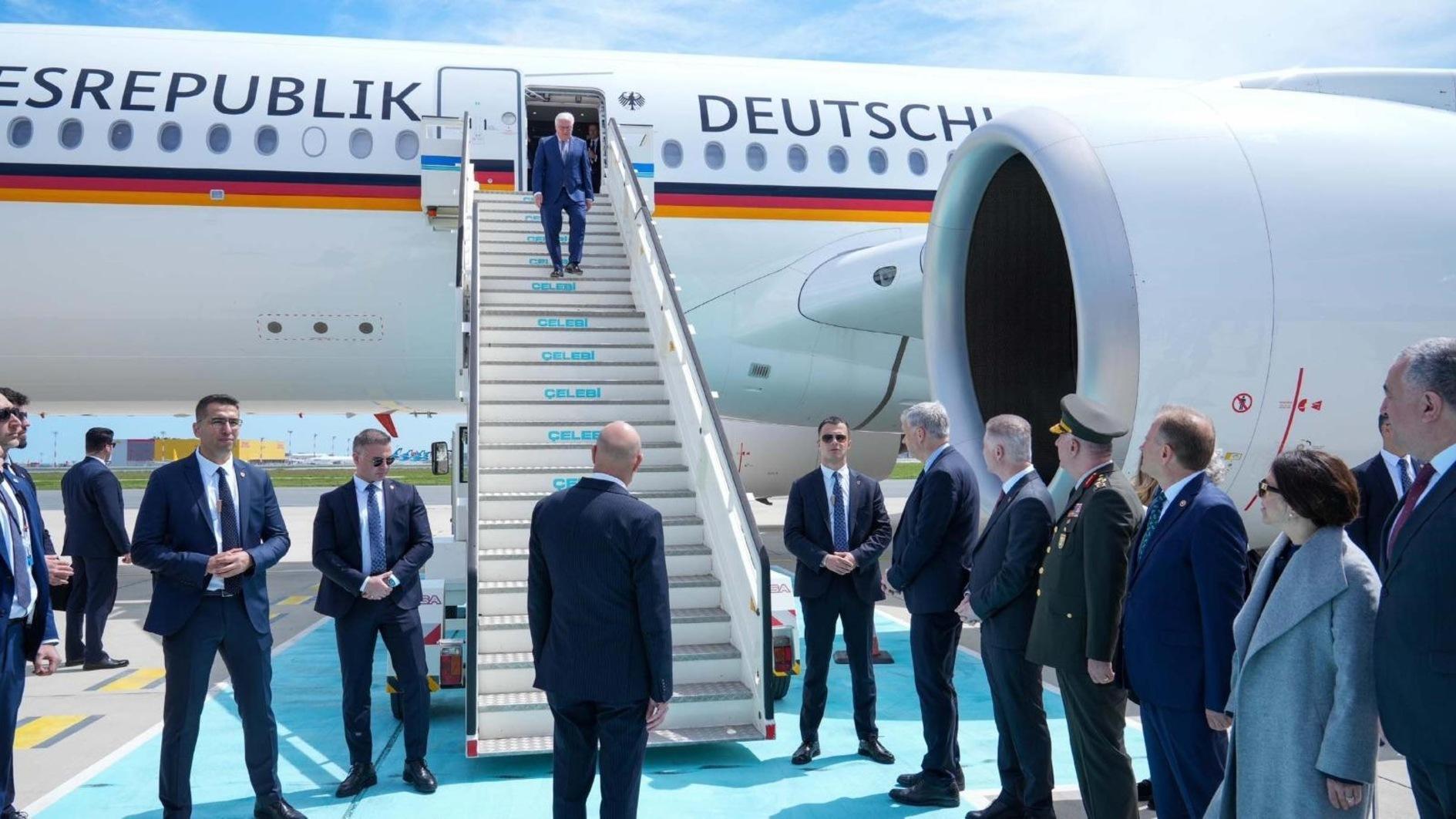Techno center to boost local defense industry
Ümit Enginsoy ANKARA - Hürriyet Daily News

Teknopark Istanbul will become Turkey’s most important technology center, says Minister Nihat Ergün (4th right). AA photo
The Turkish government aims to make Teknopark Istanbul the country’s Silicon Valley for the defense industry. The center is expected to employ around 30,000 people and generate yearly revenues up to $5 billion.The Turkish government on Nov. 18 laid the foundations for Teknopark Istanbul, a technology center that will house hundreds of mainly defense companies and their research and development efforts, hoping to create a Silicon Valley for the country’s defense industry.
Science, Industry and Technology Minister Nihat Ergün, Deputy Defense Minister Kemal Yardımcı and Defense Industry Undersecretary Murad Bayar were among dignitaries who attended a ceremony to mark the laying of the foundation of the technology park’s research and development building at Kurtköy, Pendik, on Istanbul’s Asian side.
Teknopark Istanbul will probably become Turkey’s most important technology center, Minister Ergün said. Recalling the government’s targets to reach a gross domestic product of $2 trillion and an export volume of $500 billion, Ergün said “Teknopark Istanbul will contribute to reaching these figures.”
Teknopark Istanbul will operate a 700,000-square-meter indoor space at Sabiha Gokcen Airport near Istanbul, accommodating 30,000 personnel and targeting up to $5 billion in defense and nondefense business annually, to become one of Europe’s largest technology parks.
Its major shareholders are the Undersecretariat for Defense Industries (SSM) with a 45 percent stake; and the Istanbul Chamber of Commerce (İTO) with a 40 percent stake. İTO, which also runs a university with the same name, has some 300,000 member companies.
“Teknopark Istanbul will introduce new technologies to a city that already generates an annual $133 billion” in economic activity, Turgut Şenol, Teknopark’s CEO, told the Hürriyet Daily News.
“The site will bring together companies and 27 universities in Istanbul, targeting strategic fields like aviation, maritime, electronics, information technology, nanotechnology, energy and automotive, biotechnologies, automation systems and robot technologies,” he said. Some of the world’s technology giants are in talks with Teknopark Istanbul to build their own offices there, Şenol added.
“The site will offer its residents tax advantages and logistical benefits, as they will be located within a major European airport and have quick access to a trans-European motorway,” he said. “Here, we will be hosting both Turkish and foreign technology ventures.”
Şenol, a former SSM department chief, had also chaired defense companies Ayesaş and Meteksan Savunma. Before that, he was a business development chief at military electronics company Havelsan, one of Turkey’s top five defense companies.
A procurement official familiar with the Istanbul Teknopark project said the compound will help make Turkey an advanced production center for local, foreign and joint venture programs. “We place strategic importance in this site, which we are certain will support several international programs involving both Turkish and Western manufacturers,” he said.
In recent years, Turkish companies have won subcontracts from multinational programs, including the F-35 Joint Strike Fighter, attack helicopters and naval vessels, as well as contracts for vehicles, electronics and software for Turkey’s military. “Foreign contractors surely will benefit from Teknopark Istanbul, as international production programs involving Turkey are on a visible rise,” Şenol said.
According to him, the first resident companies will start operations at the technology park by the end of 2012. Partners SSM and İTO have earmarked an initial construction budget of $100 million for the project.
“Our principal mission is to contribute to the national innovation system and to boost the local industry’s international competitiveness through multinational partnerships and technological advancement,” Şenol said. Defense analysts said the technology park is intended to further boost local companies with a first-ever serious investment in research and development.
“That’s a mission fully in line with the Turkish government’s strategic objective of creating an increasingly independent, competitive and export-oriented local industry,” said one Ankara-based defense analyst. The government in recent years has encouraged domestic design, development and production of the weapons it requires. It also has encouraged joint development and coproduction with foreign companies
















